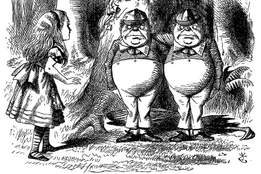complicit
adjective
com·plic·it
kəm-ˈpli-sət 

: helping to commit a crime or do wrong in some way
He was complicit in the cover-up.
Love words? Need even more definitions?
Merriam-Webster unabridged









Share